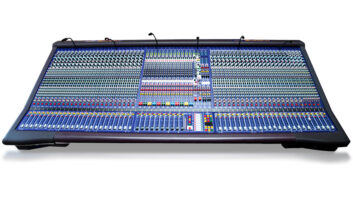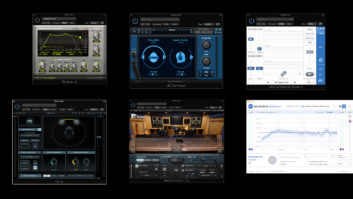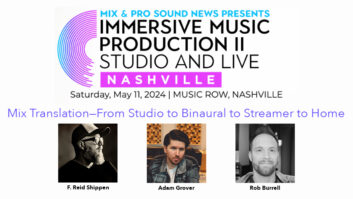For me, mixing is the most fascinating, challenging and rewarding part of the music production process. It’s like a long, multifaceted story that unfolds with twists and turns and fateful decisions that influence the ones that come after. And in the end, you get a tangible, artistic result.
It’s multidisciplinary, too. Sort of like a combination of piloting the Enterprise, playing an instrument and directing a movie—science and creativity all rolled into one. It’s also incredibly labor-intensive. At the end of the process, if you were to go back over a list of all the steps you took from start to finish, you’d see an impressively long and diverse group of actions. Each one required a mental calculation of some sort, whether conscious or unconscious, evaluating the situation and making a decision, both concerning the micro—the specific element you were adjusting—and the macro, the mix as a whole.
Read more Mix Blog Studio: Yo, Merge This!
To be a mixer, you need more than just a good ear, you also need least some level of understanding (the more the better) of how the various processes you’re initiating work and how they impact the audio, whether at the track or master-bus level. You also need to be organized and disciplined. Think of it: you’re dealing with dozens of tracks, multiple processes happening simultaneously, a routing scheme that can differ substantially from song to song, and a thousand more unknowns.
And if you mix for clients (or even demanding friends or bandmates), you need some additional skill sets. One of them is diplomacy. Depending on the client, of course, you have to be able to deftly deflect suggestions that would be damaging to the end result, without making the artist feel like you’re not following his or her vision. There are times you might not want to tell that singer that you’re subtly tuning the vocals. Sometimes it’s better just to let that person think his or her pitch is spot-on.
If you have a project with multiple clients who don’t see eye to eye, you have to navigate the dangerous waters between them with King Solomon-like compromises. While at the same time, you need to keep the project moving forward and not mired in arguments over how loud to make the snare drum or whether or not to put a telephone EQ on the vocal in the bridge.
When you’re under deadline pressure, being decisive is another necessary skill when working with clients. I’m always impressed with the ability of pro mix engineers to crank out finished mixes quickly, within a few hours sometimes. Their skills are so finely developed that they can hear when a mix is ready to be declared “finished,” and complete the project and move onto the next one without hesitating. That’s a level of decisiveness that all mixers should aspire to.
But in the meantime, finishing a mix can be a much more lengthty process, with multiple recalls and tweaks and fixes. But even when a project is difficult to push over the finish line—perhaps because it’s hard to discern just where the finish line is—it’s almost always a valuable learning experience.







